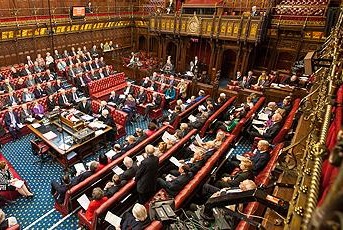Committee concerned Bill does not properly define situation in which failed asylum seekers will lose Government support
The House of Lords Constitution Committee has today published a report on the Immigration Bill 2015-16.
 Image credit: UK GovernmentYou can read in it PDF format here and HTML here.
Image credit: UK GovernmentYou can read in it PDF format here and HTML here.
As noted in a press release, the report raises concerns that the Bill proposes that failed asylum-seekers will only be able to obtain Government support if they do not face a 'genuine obstacle' to leaving the UK, but it does not define what constitutes a 'genuine obstacle'.
Lord Lang, Chairman of the Committee, was quoted as saying: "We are concerned about the lack of a definition of what constitutes a 'genuine obstacle' to a failed asylum seeker leaving the UK. Failed asylum-seekers who are judged not to face a 'genuine obstacle' to leaving will be prevented from receiving Government support. This is clearly a change that could have a profound effect on vulnerable individuals. We think it might be more appropriate for the definition, which will be crucial in determining whom will be affected, to be clear on the face of the Bill so the House can make an informed decision."
The report states: "In the absence of any definition of the term 'genuine obstacle', the House is being asked to legislate without a clear understanding of how this legislation might affect individuals in potentially desperate circumstances—with significant consequences for those individuals should the term be ascribed a relatively narrow meaning. The House may wish to consider whether it would be more appropriate for the meaning of the term 'genuine obstacle' to be defined in greater detail on the face of the Bill."
In addition, the Committee expresses concerns about provisions in the Bill which give the Home Secretary the power to overrule independent judicial decisions of the First-tier Immigration Tribunal on immigration bail conditions.
The report says: "We are concerned that schedule 7, which would allow a Minister to override or alter independent judicial decisions about immigration bail conditions, is in tension with the principles of the rule of law. The usual process, should a Minister have concerns about a judicial decision, would be to appeal against it. The House may wish to ask the Government to clarify how their proposals comply with the rule of law. The House may also wish to ask the Government why, if the intention is to ensure the use of certain bail conditions for particular offenders (such as satellite monitoring for foreign nationals), they do not simply propose new criteria for the First-tier Tribunal to take into account when setting bail conditions."
Lord Lang said this could be seen as undermining the rule of law, adding: "If the Government wants more immigration detainees to be subject to electronic tagging it should propose new criteria for the First-tier Immigration Tribunal to take into account rather than seeking to override judicial decisions."
The Committee's report also drew attention to the complexity of immigration law, calling the Immigration Bill "lengthy and complicated."
The report states: "The disparate and complex nature of the legislation in this area is of real concern from a rule of law perspective. Whilst we recognise that this issue goes far beyond the provisions of this particular Bill, we wish to draw to the attention of the House this general concern, and our view that further thought must be given to this matter so as to make immigration law accessible and fit for purpose."